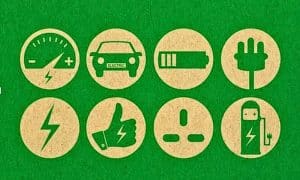In this page
NSW residents are noticing a rise in the price of their energy bills. This confusing tendency is primarily because energy providers frequently charge you more during the daily peak billing period, in addition to the increasing base price of electricity.
People are taking action to lower their electricity costs. The most disruptive option is to switch your energy use to off-peak electricity hours and take advantage of the nightly cheaper rates. Still, this significant lifestyle change can take time to put into practice.
Understanding and learning your energy tariff and charges on your bill is the best way to reduce costs without altering your way of life. Check out our page about residential electricity demand charges.
What are peak electricity times in NSW?
In New South Wales, peak electricity times typically run from 2 pm to 8 pm on weekdays, when demand for electricity is highest. This means you’ll be charged a higher rate for your power usage during this period. To save money, consider shifting some electricity use to off-peak hours, generally from 10 pm to 7 am every day, including weekends. Evenings and mornings on weekdays fall under shoulder rates, which are lower than peak but higher than off-peak.
Meaning of "Peak Usage" on my bill
Most of us will see the term “peak usage” on our electricity bills. Still, depending on the energy tariff you have in place, this term will have different meanings for various customers. The most common tariffs you might encounter are
Time-of-use tariffs. The terms peak and off-peak should determine your billing rates during different times of the day. These terms may be familiar if you have signed up for a time of use (TOU) or flexible pricing plan with your energy provider. It is more frequent in NSW’s Ausgrid distribution region (the Eastern half of Sydney up to Newcastle). Even with a smart meter, time-of-use billing is often unavailable in the Endeavour distribution region (Western Sydney).

Single rate tariff. No matter what time of day you use the electricity, you pay the same price if you have a single rate tariff. Energy providers still refer to these costs as “peak usage,” nevertheless. It is especially true if you have a controlled load, in which case you pay for your pool pump or hot water heater at a discounted cost.
Understanding peak and off peak electricity times
Peak, off peak, and shoulder periods are used to describe times of day or days of the week when energy consumption changes depending on demand in the energy industry. Electricity usage at peak and off peak times is only important for time-of-use or flexible pricing tariffs.
Retailers of power charge more during peak times. They charge less at off peak hours. Usually, the shoulder period falls in the middle.
- Peak: On weekdays in the early and late hours when office workers are home.
- Off-peak: The electricity network is usually less used than usual late at night and early in the morning or on weekends when most businesses are closed and most people are asleep.
- Shoulder: The times between peak and off-peak.
When you consume power, your pay will vary if you have a time-of-use rate. Depending on the retailer, winter and summer may be peak seasons, while spring and autumn may be off-peak. As seen on your electricity bill, your retailer calculates electricity use in cents per kilowatt hour (kWh).
Learn more about off-peak electricity in NSW
How to take advantage of off-peak electricity times
To take advantage of off-peak electricity times and save money on your electricity bill, it’s essential to use electricity during these periods. Some ways to do this include:
Setting your appliances to run during off-peak hours
If you have appliances that use a lot of electricity, such as your dishwasher, washing machine or dryer, set them to run during off-peak hours.
Charging your devices during off-peak hours
Charge your phone, laptop, and other devices during off-peak hours to take advantage of the cheaper rates.
Using timers
If you have appliances that don’t have timers, consider purchasing a timer to set them to run during off-peak hours.
Switching to a time-of-use plan
If you are on a single-rate plan, consider switching to a time-of-use plan to take advantage of the lower off-peak tariffs.
Off-peak electricity and solar energy
Off-peak electricity is a type of electricity charged at a lower rate during certain hours of the day or night when demand for electricity is low. In Sydney, off-peak hours are typically from 10 pm to 7 am, although this can vary depending on your energy provider. This means that during off-peak hours, solar energy users can use their excess solar power to charge their batteries or heat water during peak hours when electricity rates are higher.
Investing in a battery storage system
One of the ways to maximise your savings with off-peak electricity is to invest in a battery storage system. This will allow you to store excess solar energy generated during the day and use it during peak hours when electricity rates are higher. By doing so, you can reduce your reliance on the grid and save money on your electricity bills.
Using appliances during off-peak hours
Another way to maximise your savings with off-peak electricity is to use appliances such as washing machines, dishwashers, and pool pumps during off-peak hours. By doing so, you can take advantage of the lower electricity rates and save money on your bills. Some energy providers even offer special off-peak tariffs for these types of appliances, so it’s worth checking with your provider to see if you can take advantage of them.
Invest in a high-quality solar energy system
It’s important to note that not all solar energy systems are created equal. Some systems are more efficient at generating and storing solar energy than others. To maximise your savings with off-peak electricity, it’s important to invest in a high-quality ecolectrical solar energy system that is designed to work efficiently with battery storage systems.
Energy Matters has been a leader in the renewable energy industry since 2005 and has helped over 40,000 Australian households in their journey to energy independence.
With Energy Matters, you can be sure you’re getting the best possible deal on solar energy. We only work with reputable solar firms with a proven track record of delivering high-quality solar systems.
Off peak electricity and electric vehicles (EV)
Electric vehicles are becoming increasingly popular in Australia as people look for ways to reduce their carbon footprint and contribute to a cleaner environment. While EVs offer many benefits over traditional gas-powered vehicles, they come with some unique challenges, particularly when it comes to charging. One of the solutions to this problem is off peak electricity, which can be particularly beneficial for electric vehicle owners. For EV owners, off peak can be particularly advantageous as it allows them to charge their vehicles at a lower cost.
In addition to the cost savings, using off peak electricity to charge electric cars or vehicles can also help to reduce the strain on the energy grid during peak demand times. This is particularly important in NSW, where energy demand can be particularly high during the summer months when air conditioning use is at its peak.
Another benefit of using off peak electricity to charge electric cars is that it can help to reduce carbon emissions. Electric cars produce zero emissions while driving but still rely on electricity generated from various sources. By using off peak electricity, EV owners can ensure that they are using electricity generated from cleaner sources, such as wind and solar.
In order to take advantage of off peak electricity, electric vehicle owners will need to install a charging station capable of charging the car during off peak hours. Many EVs have their own charging stations, but additional charging stations can be purchased and installed as needed.
While some upfront costs are associated with installing a charging station, the long-term benefits can be significant. By using off peak electricity to charge their electric cars, residents can save money on their energy bills, reduce the strain on the energy grid, and help to reduce carbon emissions.
Off-peak electricity and home appliances
Here is a comprehensive list of home appliances that can be used most efficiently during off-peak hours in order to maximise savings on electricity bills:
Dishwashers: Most dishwashers have a delay start function, allowing them to be set to run during off-peak hours. This can result in significant savings on electricity bills.
Washing machines: Similar to dishwashers, washing machines also have delay start functions that can be used to run during off-peak hours. It is estimated that running a washing machine during off-peak hours can save up to 30% on electricity costs.
Dryers: If possible, to avoid using a dryer altogether and instead hang clothes to dry. However, if a dryer must be used, it’s best to do so during off-peak hours.
Electric heaters: While electric heaters are not typically used during the summer, they can be a significant source of energy consumption during the winter. Using electric heaters during off-peak hours can help reduce energy costs.
Air conditioning units: Unlike electric heaters, air conditioning units are not typically used during winter. However, they are a significant source of energy consumption during the summer. Using air conditioning units during off-peak hours can help reduce energy costs.
Pool pumps: For households with swimming pools, pool pumps can be a significant source of energy consumption. Running pool pumps during off-peak hours can reduce energy costs.
In addition to using these appliances during off-peak hours, there are other strategies that households can use to reduce their energy bills. These include:
Turning off appliances when not in use: Many appliances consume energy even when not in use. Turning them off when not needed can help reduce energy costs.
Using energy-efficient appliances: When purchasing new appliances, it’s important to look for those that are energy-efficient. These appliances are designed to use less energy, which can result in significant savings on electricity bills over time.
Installing solar panels: For households that are able to do so, installing solar panels can be a great way to reduce energy costs. By generating their own electricity, households can significantly reduce their reliance on the grid and save money.
How can I tell if I'm using electricity at peak or off-peak rates?
Only customers who have chosen a “time of use” or “flexible pricing” tariff will be charged peak and off-peak electricity rates. You will require installing a smart meter at your property to do this.
If you’ve discussed it with your energy provider and are confident will it be financially advantageous, you should be on a time-of-use tariff (i.e. if you generally use more power during the day or late at night rather than the early evening).
If you have a single rate tariff, it would be easy to become perplexed and believe that you pay different prices for electricity at various times of the day. You might have been putting off buying home appliances for years without a good reason. In actuality, most Australian homes use a single-rate tariff. Check your bill or contact your energy retailer if you need clarification on which tariff you are on.
Only customers who have chosen a “time of use” or “flexible pricing” tariff will be charged peak and off-peak electricity rates. You will require installing a smart meter at your property to do this.
Only if you’ve discussed it with your energy provider and are confident will it be financially advantageous should you be on a time-of-use tariff (i.e. if you generally use more power during the day or late at night rather than the early evening).
If you have a single rate tariff, it would be easy to become perplexed and believe that you pay different prices for electricity at various times of the day. You might have been putting off buying home appliances for years without a good reason. In actuality, a single rate tariff is used by most Australian homes. Check your bill or contact your energy retailer if you need clarification on which tariff you are on.
Electricity distributors in NSW
Even though NSW offers more than 30 electrical providers, just three are responsible for distributing electricity across Sydney and the rest of New South Wales. Therefore, switching to a different supplier will result in you continuing to use the same distributor unless you relocate to a different address in Sydney. Additionally, distribution expenses may easily make up nearly 50% of your overall bill.
| Distribution Network | Location |
|---|---|
| Ausgrid | Inner, northern & eastern metropolitan Sydney and surrounds |
| Endeavour Energy | Southern/western metropolitan Sydney and surrounds |
| Essential Energy | Country & regional NSW, southern regional QLD |
Ausgrid
Through what is referred to as a seasonal time of use tariff, EnergyAustralia goes one step further in NSW and offers peak and off-peak electricity rates that vary between the summer and winter months.
- Summer months are from 1 November through to 31 March each year.
- Winter months are from 1 June through to 31 August each year.
- Spring months (only for shoulder periods) are from 1 September to 31 October each year.
- Autumn months (only for shoulder periods) are 1 April to 31 May each year.
| Peak | Summer months – 2pm to 8pm2 |
| Winter months – 5pm to 9pm2 | |
| Shoulder | Summer months – 7am to 2pm, and again from 8pm to 10pm 2 |
| Winter months – 7am to 5pm, and again from 9pm to 10pm 2 | |
| Spring & autumn – 7am to 10pm 2 | |
| Weekends and public holidays – 7am to 10pm, regardless of season | |
| Off Peak | All other times, including weekends and public holidays |
| 1 Residential customers only, different times apply to business customers. | |
| 2 Working weekdays only. | |
Endeavour Energy
- High-season is from 1 November through to 31 March each year.
- Low-season is from 1 April through to 31 October each year.
While they previously had a shoulder period, this fell away in 2019.
| Peak | 4pm to 8pm 1 |
| Off Peak | All other times, including weekends and gazetted public holidays in NSW |
| 1 Working weekdays only. | |
Even though peak usage hours are the same in both high and low season, the actual cost per kWh may change.
Essential Energy
It doesn’t matter what time of year it is. Essential Energy always has the same peak, should, and off-peak periods. Additionally, no public holidays are observed at separate hours. The interval metre you have installed must be able to remotely record consumption in 30-minute intervals for these times to be valid.
| Peak | 5pm to 8pm 1 |
| Shoulder | 7am to 5pm, and again from 8pm to 10pm 1 |
| Off Peak | All other times, including weekends and public holidays |
| 1 Weekdays only. | |
Ready to go solar? Get an instant assessment
To find out how much a solar system with storage or even an EV charger will cost, try our easy-to-use solar power and battery storage calculator! It will generate performance data and possible cost savings.
We can forward your information to 3 trusted local installers in your area to obtain free, no-obligation solar quotes.
Find out how much you can expect to pay for solar
Ready to find out more? Get FREE quotes for solar, batteries + more
*Prices quoted are to be used as a guide only and do not factor in state and other rebates and incentives. Includes STC discount.
Energy Matters will feature stunning homes installed with the latest solar technology every Saturday at 4.30 pm on Open Homes Australia on the 9Life channel. Be sure to watch this show; you don’t want to miss it!


















































